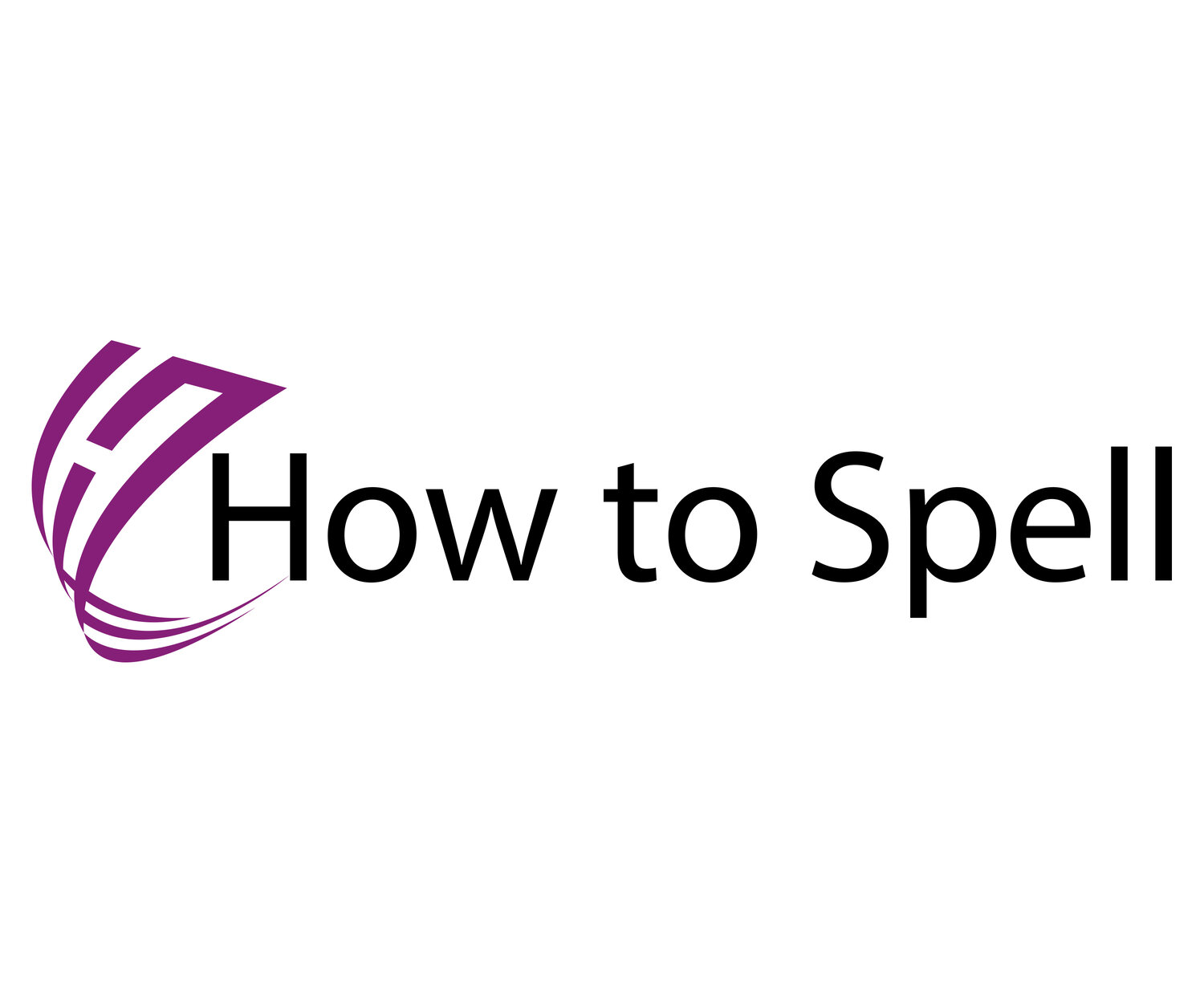How to Help your Child with Spelling: Three Essential Insights for Parents
by Joanne Rudling from www.howtospell.co.uk
Your heart sinks as you look at your child’s spelling — their face full of hope that they’ve got it right this time. Your child reads so well so why are they getting their spellings so wrong? In frustration, your child asks, ‘But why?’ You shrug and say, ‘It’s just the way spelling is.’
Let’s make this whole experience so much better for you and your child by looking at three important spelling insights that will improve you and your child’s understanding of spelling.
1: Does Reading Improve Spelling?
Reading is super important but — contrary to popular belief — it doesn't help children become good spellers. You need to stop thinking that your child should be a good speller because they read well. The key to improving spelling comes through learning how spelling works rather than through reading.
According to Rebecca Treiman, from the Department of Psychological and Brain Sciences, Washington University: ‘If children became proficient spellers purely though reading, then teaching spelling formally would be unnecessary.’ We’d all be good spellers!
Spelling is much more difficult than reading. Different skills are involved.
Spelling and English language expert, David Crystal (The English Language), says that ‘teachers assume that reading, once taught, automatically means that spelling will be ‘caught’. But there is no correlation between reading ability and spelling ability. Spelling uses a set of active, productive, conscious processes that are not required for reading.’
Reading ability in children is ahead of their spelling ability. As professors Bear, Invernizzi, Templeton and Johnston (Words Their Way) tell us, many children can read words like shopping and bottle, but spell them shoping and botel. (We’ll see why kids need to understand double letters later.)
On the other hand, latest research shows that knowing all about how the spelling system works helps with reading across all age groups. J. Richard Gentry is an expert on childhood literacy, reading, and spelling. In his blog post for Psychology Today: Why Spelling Instruction Should Be Hot in 2022—2023 he explains that research is finally showing the importance of explicit spelling instruction for reading comprehension, which is ‘paving the way for a resurgence of teaching English spelling in today’s classrooms.’
So, explicit learning of spelling is key to a child’s spelling and reading development. This has been known in adult literacy for decades — child literacy research is catching up!
2: Why do we Have so Many Silent Letters?
The KS1 and KS2 (ages 5-11) Spelling National Curriculum for England, and their SAT spelling tests, love silent letters:
KS1 (ages 5-7): knit, knock, know, wrist, wrong, why, when, wheel
KS2(ages 7-11): lamb, thumb, ought, though, thoughtful, muscle, scenic, doubt, thistle
“But why have we got these stupid silent letters?” your child asks in frustration. If anything trips them up in spelling words correctly, it’s silent letters!
60% of words have silent letters in them so it’s useful to understand why we have these redundant letters in the spelling. The answer is in the history of these words (etymology).
Most of the silent letters are dinosaurs — the fossilised remains of the way we used to say these words.
Yes, we used to pronounce most silent letters: k-nee, w-rist, com-b, g-nat, shou-l-d, dau-gh-ter. Then over the years these letters dropped out of our speech, most likely because it’s easier to say the words without them. But we keep them in the spelling to show the history of the word.
Year 2, KS1 (ages 6-7) need to learn words with the kn- and gn- patterns. In the Curriculum, they say ‘The k and g at the beginning of these words was sounded hundreds of years ago.’ But wouldn’t it be more exciting for kids (and teachers) to know that these words came from the Vikings? (And links to the history curriculum.)
(An interesting fact is that we used to pronounce the ‘k’ and ‘g’ up until the 17th century.)
The way we say words is always changing, for political and social reasons, or just to make saying them easier and faster. But the spelling of them doesn’t change or we’d be forever updating dictionaries!
Aidan Severs, a deputy head at a primary school in the North of England, regularly uses the history of words to boost vocabulary and spelling: ‘Just as with anything in the primary classroom, if the adults are excited about it, then the children are, too. Make discovering a word’s origins a regular feature of the day.’
(For more information about the history of spelling and words, check out The Reasons Why English Spelling is so Weird and Wonderful.)
3: Making Spelling Mistakes is Good — Why?
Don’t let your heart sink when you see your child spelling incorrectly — look at it as a way to help your child. Psychologists and educationalists know that mistakes in spelling can show how a child is developing their spelling and reading. Discuss their mistakes so they can learn why spelling is the way it is.
In the British Journal of Developmental Psychology, Critten, Pine, and Messer conclude that asking children to explain and reflect on spelling can ‘indicate gaps in understanding’ and as a result can help us figure out the right way to help them.
Some tips:
Ask your child to read the incorrect word again. They might be able to see the mistake or hear they’ve left a sound or letter out. Sometimes they run out of steam and forget the endings of words! They might forget to add the ‘s’ on plural endings, writing ‘train’ when they mean ‘trains’, for example.
Talk through why the word is misspelt and this will help them make more sense of the correct spelling than if you simply correct the mistake without explanation.
Remember those spellings from part 1 - shoping and botel? Do you know why these should be spelt with double letters (shopping and bottle)?
The double letters in shopping and bottle indicate a short vowel sound. Compare these with single letter words and notice how double (short vowel sound) and single (long vowel sound) letters help us understand the words and their very different meanings: ‘slimmed’ rather than ‘slimed’, ‘tapping’ rather than ‘taping’, ‘slopped’ rather than ‘sloped’, and so on.
Double letters serve a purpose — to clarify the meaning of the word — and aren’t just there to make you crazy!
According to Australian Research Fellow Dr Alison Madelaine ‘When children are taught the structural characteristics of the English language, they build the knowledge and skills to be able to spell many more words than those they’d encounter via spelling lists, including new and unknown words.
Your child may spell a word correctly on their first attempt but then incorrectly the next time they try — don’t despair as this is natural. Children need to get spelling into their long-term memory and achieve long-term retention of words by using different spelling practices. They might need seven to ten attempts at a word to get the word fixed in their memory. For more tricky words, the use of memory tricks and mnemonics is useful.
Please remember that the way you correct children’s mistakes can have a lasting influence on their relationship with spelling. Allow making mistakes to become a joyful learning experience.
Discussing spelling mistakes with your child can help them start to see the logic in spelling and, hopefully, fall in love with spelling!
Conclusion
Don’t get stressed about your child’s spelling — know that it naturally lags behind their reading ability. There are reasons why spelling is the way it is; explicit teaching of spelling not only helps improve spelling but also improves reading!
English spelling is not an illogical burden there to make life difficult for our children. As Misty Adoniou says, if we are not simultaneously teaching children the sounds, the structure and the history of words, ‘then we are not giving them all the pieces of the spelling puzzle – and their struggles will be our failure.’
‘Learning to spell is a continual process that does not cease after a word was spelt correctly on a test’, as J. Richard Gentry tells us. ‘Investment in spelling books and explicit word study for spelling is money well spent. You don’t have to wait. These resources are available and ready-to-use to supplement any reading program.’
Joanne Rudling is a writer, lecturer and owner of this spelling website. She has written numerous books on spelling for adults and children and online spelling courses for adults.


